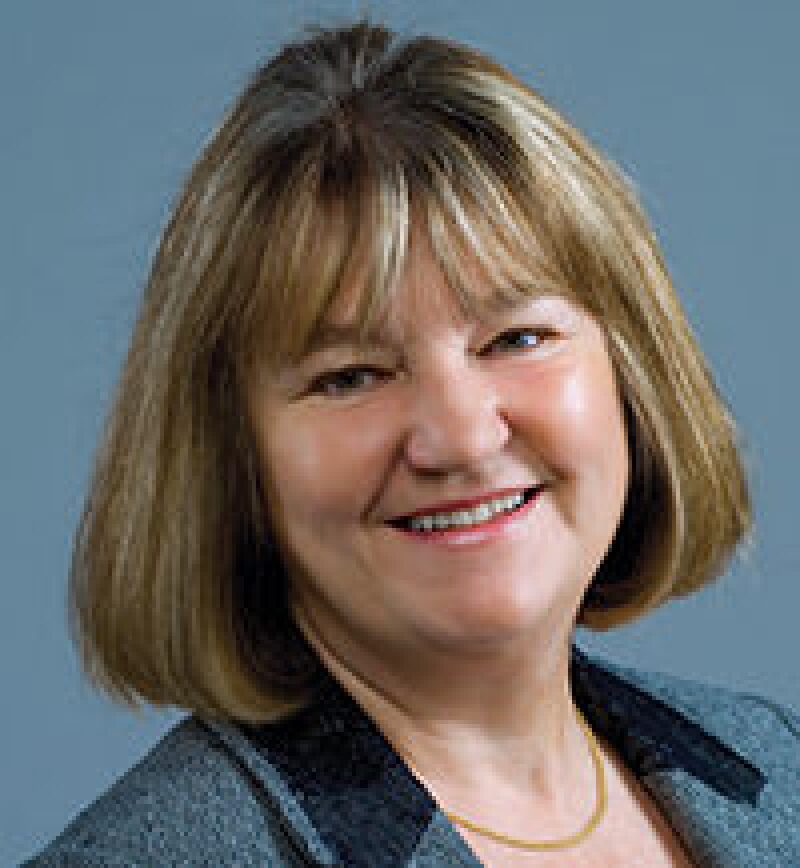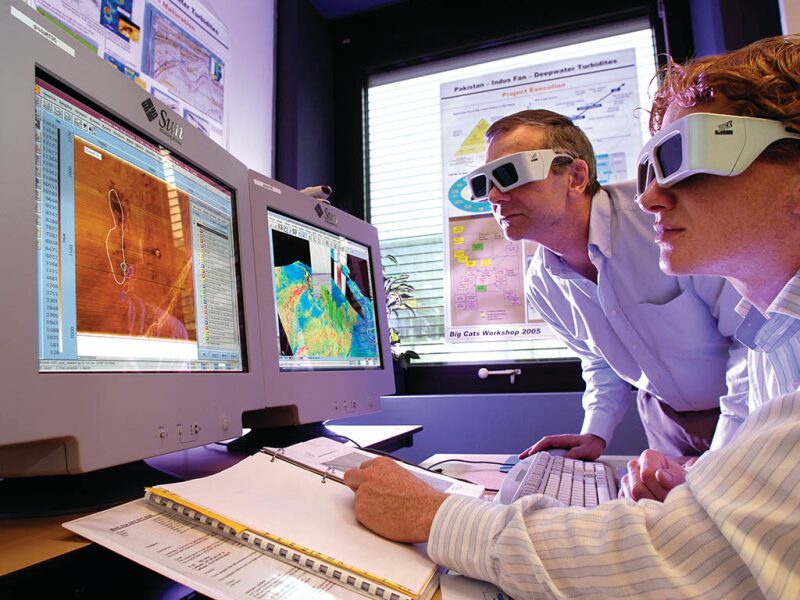The Way Ahead Technical Leader interview invites senior figures who have become pioneers of innovation and technical excellence within the E&P industry to engage in a conversation exploring their careers, advice, and vision, while uncovering lessons learned that have made each of these individuals true technical leaders. For this interview, we travel to the Shell International E&P office in The Hague, The Netherlands, for a discussion with Lynda Armstrong, vice president, EPT Solutions, Shell.
Tim Crumrine and Anthony Onukwu, Editors, Technical Leaders
What in your early life led you to choose a career in the E&P industry?
I studied geology and physics at Durham University, and I was looking for a career that would be challenging, but also complemented what I studied at university. During that time, the oil and gas industry was beginning to flourish in the UK, and the North Sea was starting to gain a high profile as a major player with big fields like Brent and Fulmar being found and appraised. So when an offer came through from Shell after my graduation, I felt it would be a good time to join the industry.
What was your first job in the industry, and what was your impression of the industry when you first joined? How has your view of the industry changed?
My first job was with Shell in the UK. I started with Shell in 1975 as an exploration geologist/geophysicist. I was also very fortunate to have them sponsor my post-graduate study. My first impression of the industry was that it is exciting and challenging. It seemed friendly and team-orientated and focused around knowledge—rather than the use of high-tech tools and solutions. It has certainly become much more sophisticated and technology driven. We now rely on global networks, virtual working, and collaboration. Connectivity has opened the doors for knowledge transfer. It is also much more integrated, even though we are working across global boundaries. It used to have a more linear approach to field-development planning—exploration to appraisal and finally to development, but now we need to think more holistically about any opportunities we want to develop, right from the first wells.
What are the most memorable experiences in your career since?
Of course starting off as an exploration geologist, my very memorable moments were when we found new hydrocarbons. Also memorable in my petroleum engineering roles were to see a facility being built on the basis of the field-development plan that I had worked on. In the mid-1980s, I was heavily involved in the development plan of the Gannet Asset in the central North Sea, so to see the field later producing oil and making a profit was rewarding. And of course for me, a highlight of my career was receiving the OBE from the British Government for my contribution to the oil and gas industry in Britain. It was a proud moment.
What do you enjoy most about your job?
What I enjoy about my job is primarily the interaction with highly skilled people. In addition, I enjoy the fact that I am working in an industry that is of international importance. Hydrocarbons can make such a huge difference to the economies of nations/countries. Being involved in such an important industry is a privilege.
What advice would you give to those professionals in the early stages of their E&P careers who are seeking a technical-career track?
I think it is really important to gain as much technical knowledge as you can in the early stages. If you don’t invest time in building the foundation, it is difficult to build up a solid career in such a technical industry. So my advice is to enjoy this period and learn as much as you can on a variety of projects. It will not only provide you with solid technical skills, but also with skills that can be transferred into other roles. For example, I spent the first 15 years of my career doing technical work. Now, in my current managerial role, I still use that knowledge.
It seems that many young professionals (YPs), almost two-thirds, are hoping for a career in management. Would your advice change for these YPs?
First, it is difficult to manage something when you don’t fully understand the technical basis. The best managers are those who have built up a solid understanding of the business in a technical role. Limited technical knowledge could prevent you from making good business decisions. Second, I think technical work is more exciting when you are starting out. The technical work provides a good base to determine if your talents lie more on the technical side or in a leadership role.
Young professionals should remember that our industry is something they can contribute to for a long time, so enjoy yourself building up your technical career first. That way, when you do find yourself in a management role, you will be much more respected by your team.
Who has helped you the most in your career, and what lessons did you learn from your mentors?
When I first joined the industry, I was fortunate to share an office with an experienced geologist, who really showed me what it was like to work in this industry. He helped me to settle in and guided me in building my technical expertise. He is a world-respected geologist and, although retired, now is an honorary professor at the University of Aberdeen. I still keep in touch with him after so many years. There are also many other talented professionals that I have had the privilege to have worked with, but your first mentor is always important.
What other challenges are out there? What is on the horizon? How should young E&P professionals prepare?
The challenge for the next generation of E&P professionals is to apply the technologies that allow us to develop hydrocarbons in the more difficult places—either difficult geographically, such as ultradeep water and arctic conditions, or difficult reservoir conditions, such as tight rock, high pressure, and heavy oil. There are still large reserves of hydrocarbons remaining in these types of environments, and it will take real technical innovation to develop them safely and economically. And of course the other challenge is to develop hydrocarbons while minimizing the carbon footprint. Shell is actively involved in a number of projects around the capture and management of carbon emissions.
Shell has changed drastically in the past several years, in terms of recruitment and staff development. What drove these changes, and what have been the benefits so far?
One of my many roles within Shell was as a recruitment manager for our upstream business. I played a major role in introducing the assessment center in the Shell upstream business in the late 1980s/early 1990s. The assessment center, which takes candidates through a series of exercises, was created because it is more reliable in determining the quality of the candidate than basing the assessment on an interview alone.
The better we can assess if a candidate is going to fit into the company, the more likely he/she is to stay. Retention rates are high within Shell. We have hired highly competent people through this process over the years, and most of them remain with us to this day.
What three changes would you make to the way our E&P industry develops people?
I think that generally the E&P industry develops people well. I would call the following points areas of emphasis rather than areas of change. First, the industry must continue to ensure that time is spent deepening technical and operational experience. The opportunities for early hands-on operational work have diminished in recent years, and we need to address that issue. Second, expose staff early to the broad spectrum of issues that impact their work, for example safety concerns, commercial issues, and political agendas. Third, develop leadership capability first through self-management and then increasingly through managing others.
Do you believe that acquiring the right competency for a discipline is a lifelong practice, not a one-off process? What should a YP do to acquire the right competency for the job he or she is doing?
I would say yes. It is a longer-term process because even if you have been in the industry for a long period, the technology changes very fast. You need to keep your competencies up to speed by attending technical conferences and workshops, through on-the-job training, and by networking with your peers.
For someone who has been involved in international recruitment and human-resources management for Shell, what are the greatest challenges you faced? And what do you think are the competencies required by future energy professionals?
I think the greatest challenge is how we get graduates with no real experience of our business to understand what it is really like to work in the industry. We need to excite the next generation of scientists and engineers to join us.
The future energy professionals will still require the same technical skills needed today. However, they will also have to be knowledgeable in new technologies and be increasingly comfortable with remote working and real-time analysis and intervention. More than ever, we will require people who can think outside their own discipline and can understand the full value chain.
Do you think the industry as a whole values technical roles as much as managerial roles?
Of course we value technical people, because the industry wouldn’t function without them. It is now possible to progress your career as a technical professional. We have many people of a very senior level who are experts in their field and are still in technical positions.
Having said that, I think it is also important to have managers, as we also need people to coordinate and manage our people and our assets.
How did you get involved in SPE? What has your SPE membership meant to you?
I have been involved in SPE for a long time. I have attended SPE conferences around the world. Presently, I am chairing the Technical Committee of the SPE North Africa Technical Conference and Exhibition taking place at Marrakech, Morocco, in March 2008. SPE conferences and workshops have been a great arena for me to network and discuss new technology.
Finally, if you had to give a brief speech to young E&P professionals about the attractions of the industry, and specifically the technical challenges, what would be your main focus?
I would say to them that the industry has been influential in the past and will continue to be influential in the next decades. It provides a career that requires high levels of technical competencies. It is also an industry that can provide interesting, challenging, and exciting work; and finally, it will give you an opportunity for a global career.

A highlight of Armstrong’s career occurred in 2003, when she was awarded the Order of the British Empire (OBE) by the British Government for services to the oil and gas industry. A geologist/geophysicist by training, Armstrong studied for combined honors in geology and physics in earning her BS degree at Durham University in the UK and later earned an MS in geophysics there.

